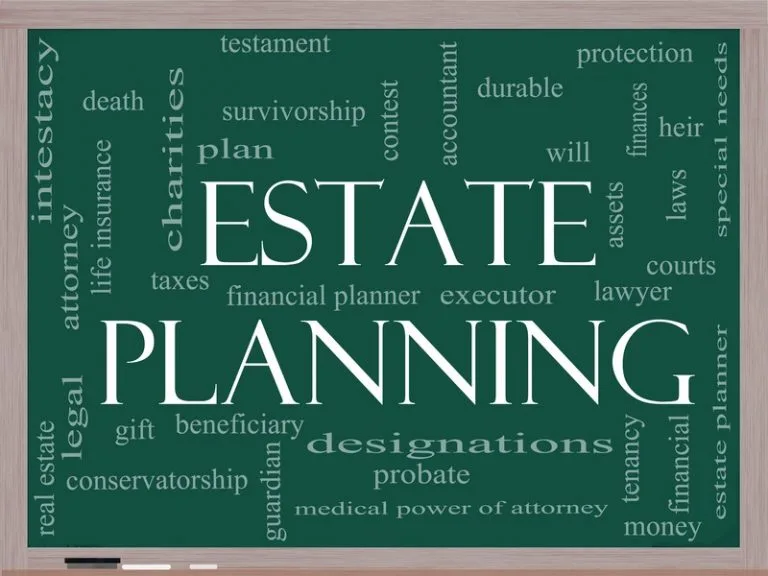Estate Planning
What is estate planning? Estate planning is more than finding a form online and filling it out. A will is one aspect of estate planning; however, powers of attorney, joint accounts with right of survivorship, life insurance, and retirement accounts are other aspects that should be discussed with an estate planning attorney as well.
An estate planning checklist is a good way to begin. It should include questions regarding assets (approximate values, where located, whether title is in one name or jointly held), beneficiaries’ names, and names of possible Executors.

At a client’s first meeting with an estate planning attorney, the attorney will review estate planning basics:
- Powers of attorney (which are powerful tools naming an agent to act, during a person’s lifetime, if the person is unable to do so),
- A will, which passes probate assets (such as tangible personal property and assets owned singly, including real estate to the designated beneficiaries in the will) and non-probate assets (which pass outside of the will by operation of law directly to the named beneficiary, such as life insurance or pay on death accounts).
Powers of attorney are important documents that should be discussed and prepared prior to an emergency or any situation in which a person is no longer competent to sign documents or make their own decisions. Powers of attorney avoid a court appearance to name a guardian or conservator. Powers of attorney end at death, when the will becomes the operative document.
Having a will in Virginia is important for several reasons:
- You name who you want as your Executor rather than having a relative or creditor appear in the Clerk’s Office requesting to be appointed;
- You devise and bequeath your assets as you want to and not as the Virginia Intestacy Statute dictates;
- You give your Executor the power to sell your real estate so he or she does not have to appear before the court to be granted permission.
If my client has probate and non-probate assets and/or a complicated family or list of beneficiaries, I like to have my legal assistant create a diagram showing each asset and the beneficiary/beneficiaries of each asset. This can create a clear picture in my client’s mind and help avoid a misunderstanding of the total amount each beneficiary receives from probate and non-probate assets.
“I have a revocable trust, so I don’t need estate planning.”
Sometimes a revocable trust (also called an inter vivos or living trust) will be a useful document. However, in Virginia, where probate of an estate is straightforward and less complicated than in many other states, revocable trusts have more limited uses and may be an unnecessary complication. An estate planning attorney can discuss the uses of a revocable trust in each client’s situation here in Virginia.
Meeting with an estate planning attorney can help clarify all of your options, tailor the documents to your wishes, comply with Virginia statutes, and simplify the probate process. Contact Joan Fine to set up an appointment to ensure things go the way you want after you’ve passed.
